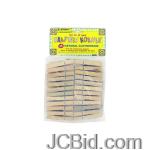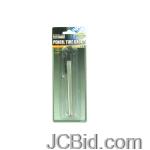
| Updated Blogs |
|
More .....
|
 RSS Feed | Login
RSS Feed | Login Health Beauty and Lifestyle
Health, Beauty and Lifestyle
Symptoms, Types and How to Prevent of Hernias
By kapalbhati at 2011-02-23 07:45:19
In Latin the word Hernia means "a rupture". When tissue protrudes through a structure, or a part of an organ through the muscle tissue or the membrane, that is a hernia. There are three parts to a hernia - the orifice, the hernia sac, and the hernia's contents. The most common place for hernias to occur in humans is the abdomen. A part of the abdominal wall is weak and allows a localized hole to develop - this hole is also known as a defect. Tissue, or abdominal organs may stick out through this hole. A hernia that involves the spinal discs commonly causes sciatica (pain in the lower back, the pain can radiate down one or both legs).
Hernia Symptoms:
Inguinal hernia symptoms are protrusions of abdominal cavity contents through the inguinal canal. They are very common and their repair is one of the most frequently performed surgical operations.
Femoral hernia occur just below the inguinal ligament when abdominal contents pass through a naturally occurring weakness called the femoral canal. The incidence of strangulation in femoral hernias is high.
Umbilical hernia involve protrusion of abdominal contents through a weakness at the site of passage of the umbilical cord through the abdominal wall. These hernias often resolve spontaneously.
An incisional hernia occurs when the defect is the result of an incompletely healed surgical wound. When these occur in median laparotomy incisions in the linea alba, they are termed ventral hernias. These can be the most frustrating and difficult to treat, as the repair utilizes already attenuated tissue.
Types of Hernia:
Abdominal Hernia - an abdominal organ or fatty tissue juts through a weakened area of the abdominal wall, resulting in a protrusion
Anal Hernia - tissue protrudes through the membrane around the anal region.
Diaphragmatic Hernia - hernia resulting from the protrusion of part of the stomach through the diaphragm - a hole in the diaphragm which the bowel can pass through, also known as congenital diaphragmatic hernia.
Hiatal Hernia - forms at the opening in the diaphragm where the esophagus (food pipe) joins the stomach. A part of the stomach pushes through this opening.
Herniatied Disc - the cushion that lies between the spinal vertebra is squeezed outside its normal position. As the spinal disc loses its elasticity, it may rupture - rupturing may cause a portion of the spinal disc to push outside its normal boundary - resulting in a herniated disc
Intracranial Hernia (in the brain) - caused by extreme intracranial pressure. This is a protrusion of brain from the cranial vault through the foramina (tentorial notch or foramen magnum) or ventral dural septae. The patient may need immediate medical attention as intracranial hernias might be life-threatening, especially if the hernia takes place in the brain stem region. Usually caused by brain edema or hemorrhage which results in increased intracranial pressure.
Pelvic Hernia, Inguinal Hernia - an interstitial hernia (happens in the small opening between tissues or parts of an organ) projecting into the pelvis from the internal inguinal ring. The inguinal ring is at the entrance to the inguinal canal. The inguinal canal is an oblique canal through the lower abdominal wall; in males it is the passage through which the testicles move down into the scrotum, it contains the spermatic cord; in females it transmits around the ligament of the uterus.
Femoral Hernias - more common among females. Occurs when part of the intestine protrudes through the femoral canal, it juts through at the top of the thigh. Blood vessels that supply the legs with blood go through the femoral canal.
Umbilical Hernia - more common among children. The abdominal wall is weakened where the umbilical cord enters/leaves the body (the belly button, the naval). Umbilical hernias can also be found in puppies.
Epigastric Hernia - occurs between the naval and the breastbone. Fat protrudes through the abdominal wall.
Ventral Hernia - most commonly after a surgical operation or trauma (e.g. car accident or bad fall). When tissue is scarred it weakens the abdominal wall, leading to hernia.
Obtuator Hernia - bits of intestine penetrates through the space between bones in the front part of the pelvis.
Prevention of hernias
In many cases, hernias are due to age and your genetic propensity. There is not much you can do about that. However, there are some factors which can raise your risks of developing a hernia.
Heavy lifting - heavy lifting is known to cause hernias. Try to avoid heavy lifting. If you can't, learn how to position yourself for lifting. According to www.bodybuilding.com, if you are weight training you should use an appropriate amount of weight relative to your strength. You should make sure you are warmed up before lifting any weights.
Make sure you bend at the knees when lifting a weight - do not bend at the waist as this will cause excessive pressure. If you are lifting a heavy object in the gym (or anywhere) take a squatting position, keep your back straight and as vertical as you can. Make sure your bodyweight is centered over your feet when you start your lift. Frequent abdominal training will strengthen those areas most susceptible to hernias.
Must read about Hernia Herbal Remedies
Smoking and coughing - coughing, especially persistent coughing can cause a hernia to develop. Anything you can do to reduce or eliminate your cough will help enormously. If you smoke, try to give up, or at least cut down. Quitting smoking will prevent several other serious diseases. Studies indicate that your chances of succeeding in giving up smoking are significantly greater if you seek help from your GP (primary care physician) and join a support group.
Nutrition - a diet that is high in fiber will help your bowel movements. Constipation, especially if the person is often constipated, greatly increases hernia risk. Eat plenty of fruits, vegetables and wholegrains. Make sure you drink plenty of fluids.
Obesity - being overweight can increase your risk of developing a hernia considerably. The more overweight you are, the higher your risk. Try to lose weight. Make sure, if you are obese, that you lose weight gradually. It is always advisable to seek professional help before you embark on any exercise program. Ask your doctor for advice on diet and exercise.
Also read about Home Remedies for Joint Pain
Vitiligo Treatment or more read on babaramdevmedicines.com
Permalink | Comments (0)
Comments
To add a comment please login by clicking here
JC Store | JasmineCorp
|
JCBid
|Software
Development |
Domain
Registration | Hosting
| Web
Designing | Buy
Books |
Advertise
with JCSearch |
Whois
|
IP
Locator |
Add
Search |
Shopping
| Store
|
Free Blogs |
Free
GuestBook | Free
E-Cards |
Free
Games |
Free
Tutorials |
Set
as Home | Add
to Favorite
| Suggest
a Site |
Directory
Our Portfolio
| Terms of service
| Free quote
| Tell a Friend
| Special Offer
| Job Opportunities
| games
| Usenet Groups




